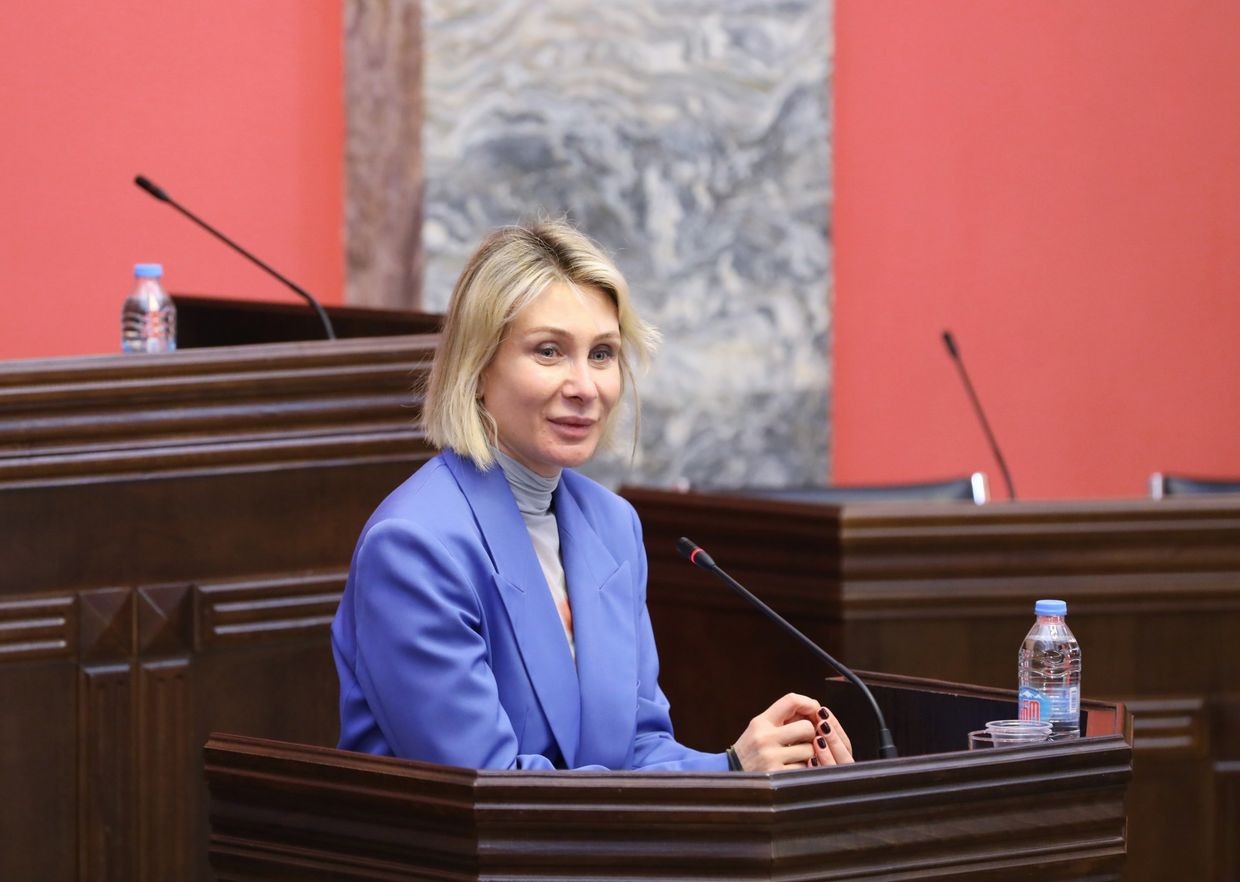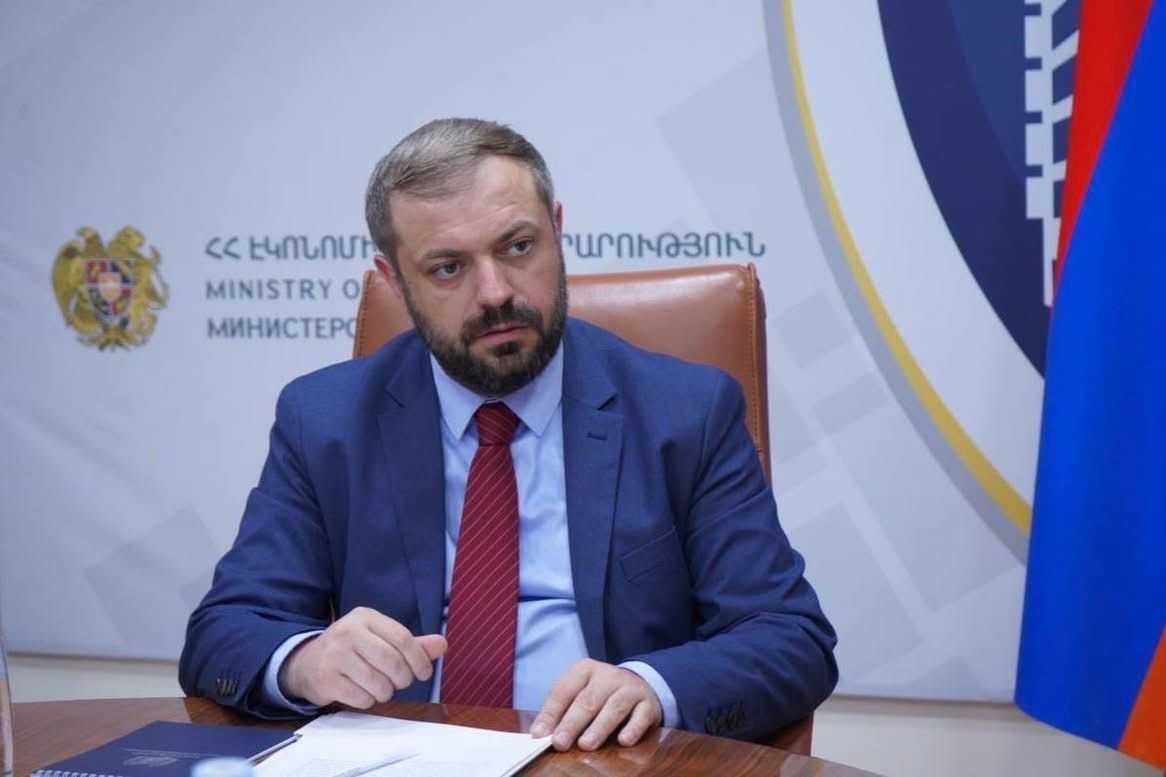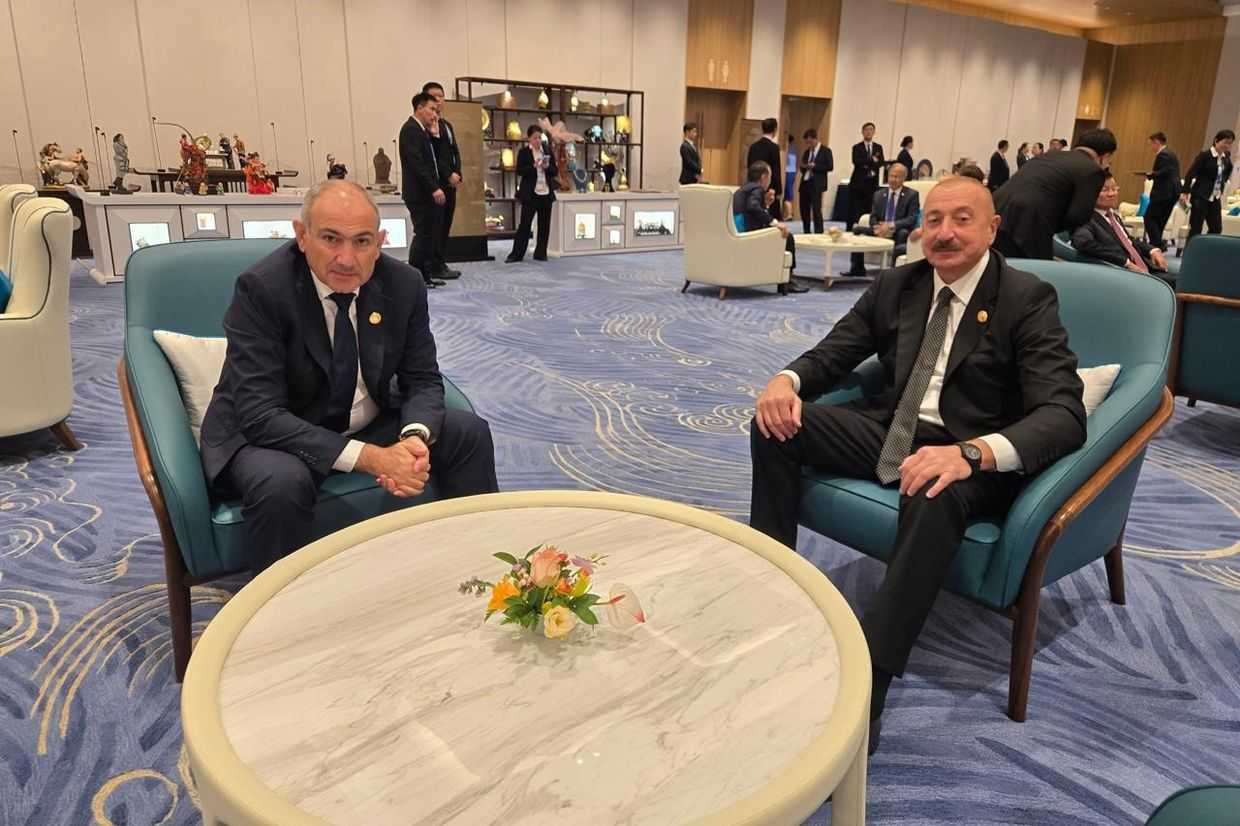Georgian Parliament slams Euronest’s ‘anti-Georgian’ resolution, blames Armenian MPs

The Georgian Parliament has strongly criticised a resolution adopted at the recent Euronest Parliamentary Assembly session in Yerevan, calling it ‘anti-Georgian’ and accusing Armenian lawmakers of undermining Georgia’s government.
Georgia’s Deputy Parliamentary Speaker Nino Tsilosani, from the ruling Georgian Dream party, said Armenian MPs had effectively gone against their own prime minister by supporting the resolution, which questioned the legitimacy of Georgia’s leadership and elections.
‘By supporting such a resolution, they are showing a lack of trust in their own prime minister’, Tsilosani said, describing the document as meaningless and designed to harm Georgia.
The resolution, adopted during the assembly’s twelfth session in Yerevan, labelled Georgia’s 2024 parliamentary elections fraudulent and accused the ruling Georgian Dream party of being self-appointed. It also condemned the violent suppression of protests in Tbilisi and called for the release of political prisoners, warning that Georgia could face a suspension of its visa-free regime with the EU if reforms were not made.
Georgia had refused to send its delegation to the session in advance, citing what it called ‘hostile and biased rhetoric’ from some members of the European Parliament. Officials in Tbilisi said those actions violated the spirit of partnership and mutual respect underpinning the Eastern Partnership initiative.
Armenia’s delegation to Euronest later rejected claims that it had voted against Georgia. Maria Karapetyan, the head of the Armenian delegation and a member of the ruling Civil Contract party, said Armenian MPs either abstained or did not take part in the vote on amendments concerning Georgia.
The only exception, she said, related to terminology about one of Georgia’s breakaway regions, where Armenian lawmakers supported replacing the term ‘South Ossetia’ with ‘Tskhinvali region’.
Karapetyan noted that Armenia’s delegation ultimately supported the wider resolution because it included key provisions concerning Armenia — among them, support for the peace process with Azerbaijan, the continuation of border delimitation based on mutual sovereignty, and a call for the withdrawal of Azerbaijani forces from Armenian territory.
Since the drastic decline in Georgia’s democratic reforms and the turn towards Russia, Yerevan has found itself at odds with the need to keep friendly relations with Tbilisi and its own newly-established EU aspirations. Brussels has repeatedly criticised Tbilisi for democratic backsliding and its treatment of opposition figures, while the Georgian Dream government has accused EU officials of interference and double standards. Georgia’s leadership has warned that the Euronest platform risks becoming politicised and detached from the principles of equal dialogue that underpin the Eastern Partnership.
Armenia, by contrast, has sought to deepen its cooperation with European institutions, signing a comprehensive partnership agreement with the EU in 2021 and beginning an accession process in 2025. Hosting the Euronest session in Yerevan was seen by Armenia as a signal of its growing engagement with the European Parliament along with other EU institutions.
This article was translated into Russian and republished by our partner SOVA.
This article was translated into Armenian and republished by our partner CivilNet.









